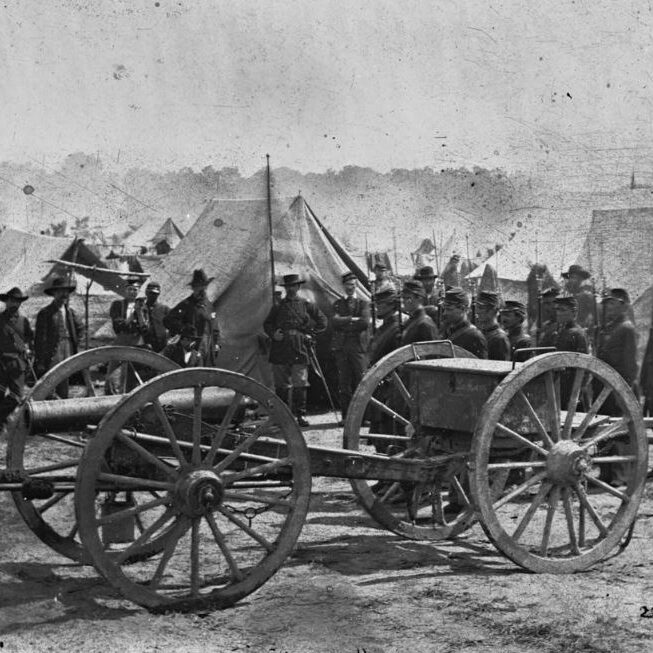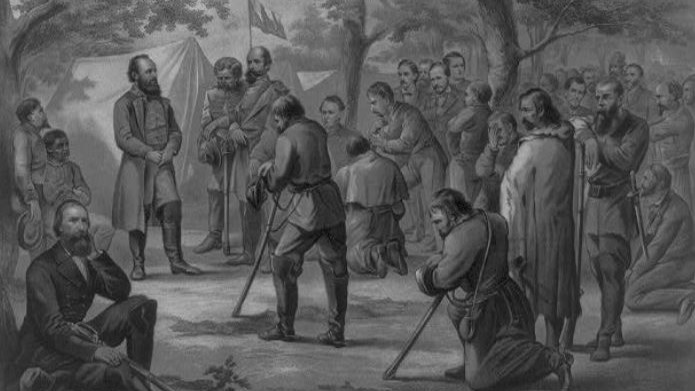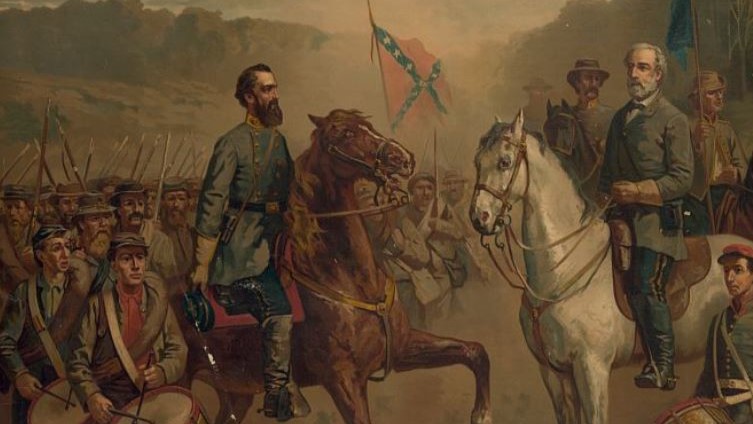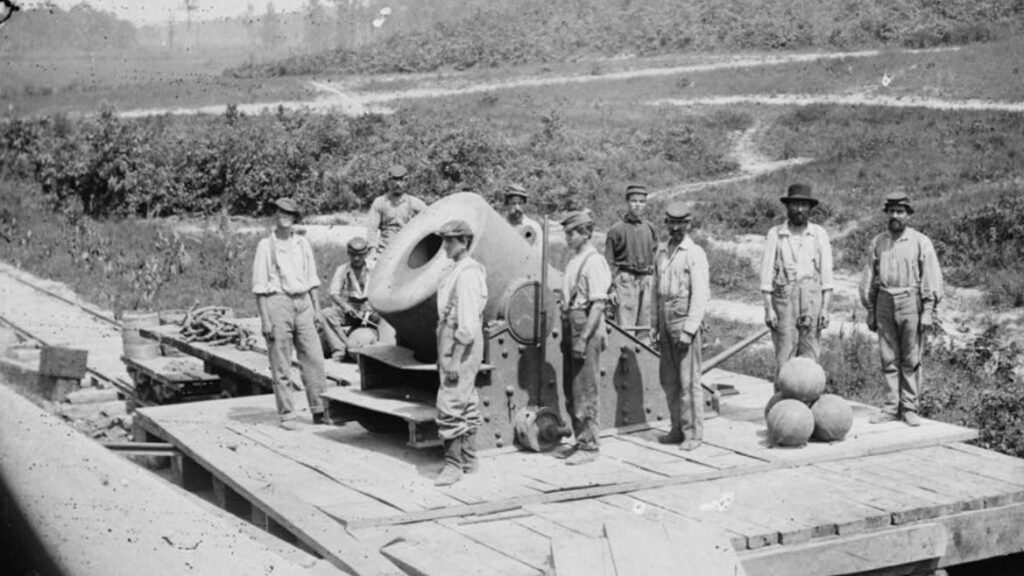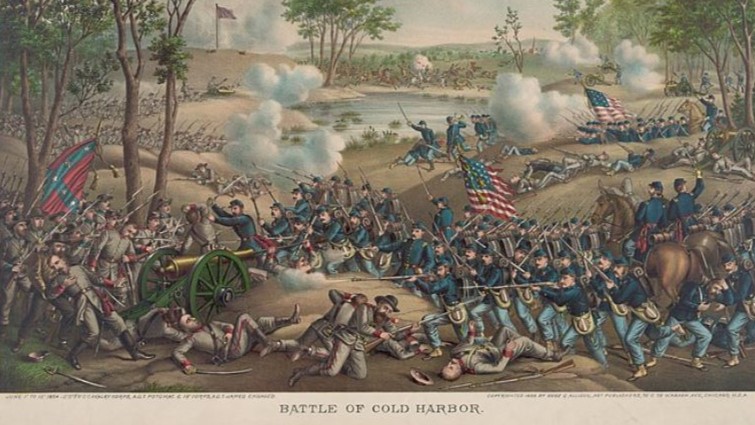In this article, immerse yourself in a captivating alternate scenario: ‘What if the South won the Civil War?’
Uncover the potential shifts in politics, culture, and global dynamics stemming from this hypothetical outcome.
The subjective nature of alternate histories, shows that different narratives unfold based on the ‘what-ifs’ that stir our imagination, reshaping the course of historical events in unpredictable ways.
- 1. Subjectivity of Alternate History
- 2. North and South Diplomacy and Peace Negotiations
- 3. Economic Relations between the Union and Confederates
- 4. Would there be an Abolition of Slavery in the South?
- 5. Political Shifts in the Union
- 6. Confederate Expansion into Mexico and the Caribbean
- 7. Industrialization of the South
- 8. Global Influence
- 9. The Impact of a South Victory on World War 1
- 10. The Impact of a Confederate Victory on World War 2
- Further Reading
1. Subjectivity of Alternate History
When exploring hypothetical historical scenarios such as the South winning the Civil War, it is important to acknowledge that there is no objective right or wrong answer.
History is complex, contingent on countless factors, and the further we speculate down alternate paths, the more uncertainty exists.
While reasoned analysis can explore potential consequences, fundamentally there is no way to prove that any particular timeline or outcome was definitively inevitable or impossible.
Rather than search for an elusive truth, it is more constructive to view alternate history as an exercise of the imagination to better understand the dynamics and forces that shaped our current reality.
2. North and South Diplomacy and Peace Negotiations

Diplomatic relations between the South and the Union
In the hypothetical scenario where the South emerges victorious in the Civil War, one of the intriguing aspects to contemplate are the relations between the newly formed Confederate States and the Union.
Speculating on this diplomatic dance necessitates considering:
- The scars of war,
- The political landscape, and
- The international community’s response.
The aftermath of a Southern victory would likely be marked by a delicate balance between animosity and a pragmatic acknowledgment of reality.
The scars of the Civil War would undoubtedly run deep, and both nations would need to navigate the delicate process of rebuilding not only their physical landscapes but also the fractured trust and unity that once bound them.
Questions arise regarding the recognition of the Confederacy as a sovereign nation by the Union.
Would the North begrudgingly acknowledge the independence of the South, or would there be persistent efforts to reclaim the seceded states?
Moreover, the international community would play a pivotal role in shaping these diplomatic relations.
How would other nations respond to a divided America?
Would there be attempts to mediate and facilitate peaceful relations, or would geopolitical interests lead to alliances with either the Union or the Confederacy?
The importance of peace negotiations following the Civil War
The size and scope of the conflict, both in terms of geography and the duration of the war, would significantly influence the nature of peace negotiations.
In a scenario where the Civil War is protracted and devastating, there might be a shared exhaustion that pushes both sides toward the negotiating table.
The importance of peace negotiations cannot be overstated, especially when considering the long-term stability of the region.
Negotiations might revolve around issues such as:
- Borders;
- Trade agreements; and
- The treatment of citizens on both sides of the divide.
The staggering costs of a prolonged conflict would necessitate economic collaboration for the benefit of both the Confederate States and the Union. Trade agreements, reparations, and joint efforts for reconstruction could become focal points of the negotiation process.
Ultimately, the size of the conflict would shape the willingness of both parties to engage in meaningful peace talks. A war of immense proportions could pave the way for a more earnest commitment to reconciliation.
3. Economic Relations between the Union and Confederates
Potential Economic Relations Post-Independence

In the wake of a hypothetical Southern victory in the Civil War, the economic landscape between the newly independent Confederate States and the Union would undergo a profound transformation.
One can envisage a scenario where economic pragmatism prevails over lingering animosities.
Cotton, being the economic backbone of the South, would likely play a central role in shaping trade relations between the Confederate States and the Union.
The Union, with its industrial complex hungry for raw materials, might find it economically prudent to engage in trade agreements that secure a steady supply of Southern cotton. This would act as a catalyst for ongoing economic ties.
The reconstruction post-Civil War could also provide a compelling incentive for both the Confederacy and the Union to engage in collaborative economic ventures.
It would be intriguing to see how the economic interdependence between the South and the Union evolves over time. Would there be a gradual integration of markets, or would both nations opt for a more cautious and selective approach to economic relations?
However, the question of how the Union reconciles its dependence on Southern cotton with the moral and ethical implications of supporting a nation that emerged from a pro-slavery stance becomes a critical point of consideration.
4. Would there be an Abolition of Slavery in the South?
Abolition of Slavery
The victory of the Confederate States in the Civil War would inevitably prompt a reassessment of their social foundations, with particular attention given to the institution of slavery.
At some point in the aftermath of the war, the South may feel compelled to address the moral issue of slavery to maintain diplomatic relations with the Union and international community. This may not be immediate but will continue to arise as a debate in the coming decades.
The international community, driven by evolving moral standards and human rights advocacy, could exert pressure on the Confederate States to dismantle the institution of slavery. This pressure might manifest through diplomatic isolation, economic sanctions, or fervent advocacy for the rights of the enslaved population.
The South might need a well-defined and strategic plan for the gradual abolition of slavery.
The challenge for the Confederacy lies in not only implementing a plan for the abolition of slavery but also in managing the socio-economic repercussions that such a shift would entail.
This is more intriguing given that one of the reasons for the Civil War was the issue of slavery itself.
Potential Parallels with Apartheid in South Africa
In the South, where slavery was deeply ingrained, a victory could have solidified the institution of slavery and entrenched racial segregation. This could have led to a system similar to apartheid in South Africa, with strict legal and social segregation between races.
A Southern victory might have perpetuated economic disparities between the races, resembling the economic inequalities present during the apartheid era in South Africa. This could have led to systemic discrimination in employment, education, and other economic opportunities.
In contemplating the hypothetical scenario of a Southern victory and the subsequent need for the abolition of slavery, it is plausible to anticipate international pressure resembling historical instances where global condemnation led to transformative change.
A regime built on racial discrimination could have faced international condemnation and isolation, as was the case with South Africa during the apartheid era. This could have led to economic sanctions and diplomatic pressure on the Southern government to reform its policies.
The long-term social impact of such a system could have included deep-seated racial tensions, with ongoing struggles for equality and reconciliation. The effects might have lingered for generations, shaping the social fabric of the Southern states.
The Emergence of an Alternate Version of the KKK
The aftermath of a Southern victory in the Civil War, coupled with the persistence of slavery for a certain period, raises the specter of heightened racial tensions and the emergence of an alternate version of the Ku Klux Klan (KKK).
The preservation of institutionalized racism, even for a limited duration, could lead to the radicalization of certain factions within the Southern population.
As international economic pressures influence social changes, some elements within the Southern society may resist the evolving landscape.
The fear of losing social dominance and economic privileges could manifest in the formation of extremist groups, drawing inspiration from historical precedents like the KKK.
This alternate version of the KKK might emerge as a reactionary force, attempting to assert white supremacy and resist societal changes brought about by the abolition of slavery.
Acts of violence, intimidation, and efforts to undermine racial progress could characterize the activities of such groups.
This could manifest itself in political movements and draw influence and legitimacy from European Fascism that spread across Europe in the early 20th Century.
5. Political Shifts in the Union
President Lincoln’s Legacy had the South Won
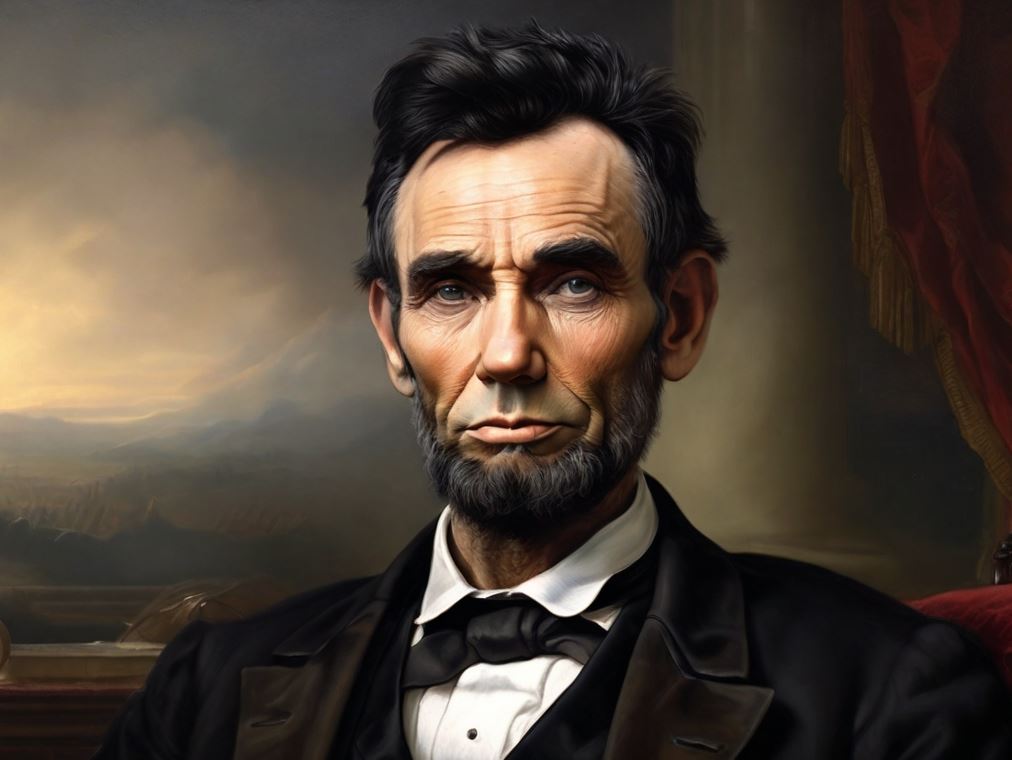
In the alternate reality where the Confederacy emerges victorious in the Civil War, the memory and legacy of Abraham Lincoln, as well as the Republican Party, would undoubtedly be reshaped by the outcomes of the conflict.
Abraham Lincoln, revered as the Great Emancipator in the historical context of a Union victory, might be remembered quite differently in a Confederate triumph.
His legacy could be overshadowed by the perceived failure to preserve the Union.
His failure to suppress secession could spark weakness in the State Government, and encourage greater devolution of states’ rights.
The Republican Party, which played a central role in the push for abolition of slavery and Union preservation, might face a shift in public sentiment.
Instead of being celebrated for its anti-slavery stance, the party could be remembered as a failure. This could have potential implications for how subsequent generations perceive these key political figures and movements.
Potential Relocation of the U.S. Capital
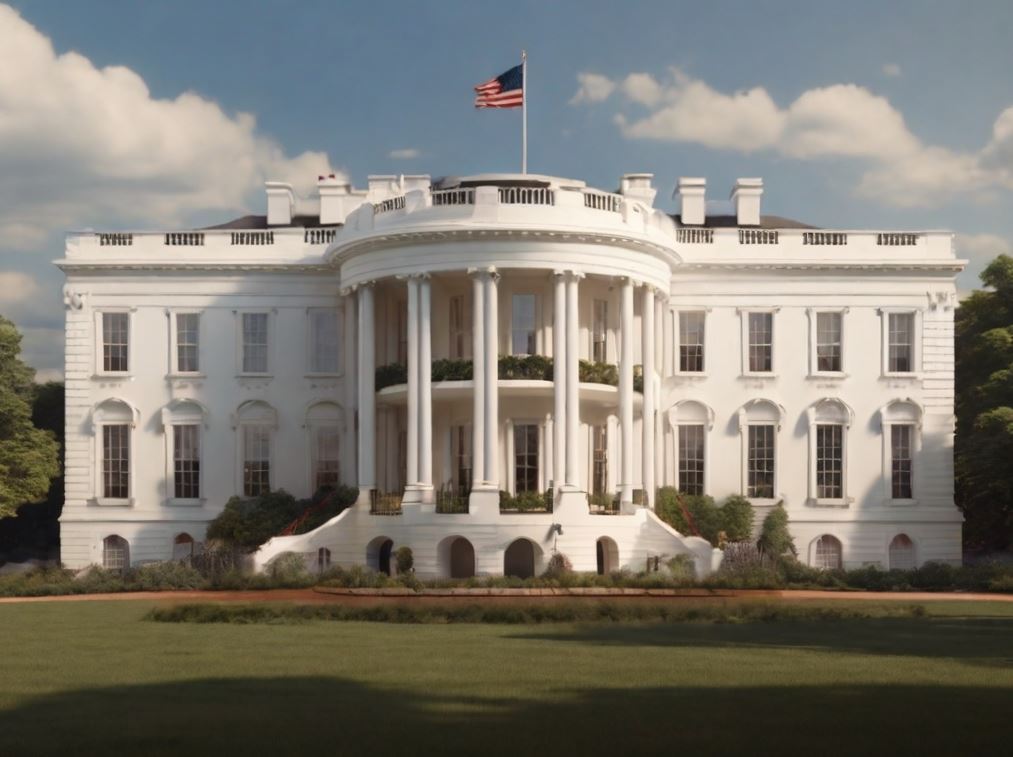
The prospect of the Confederacy winning the Civil War introduces a fascinating speculation about the potential relocation of the U.S. capital.
The historical significance of Washington, D.C., as the symbolic heart of the Union, might be reassessed in the wake of a Southern victory.
Washington, D.C. would not be tainted by memories of defeat.
The practical implications of such a relocation would be immense, involving the establishment of a new political center that reflects the political and cultural values of the post-Civil War United States.
The choice of a new capital might signify a break from the historical narrative, emphasizing the resilience and adaptability of the American spirit. The symbolism attached to the new capital could serve as a powerful statement of the nation’s ability to overcome adversity and redefine itself in the face of defeat.
Potential candidates for a new capital would likely be:
- Philadelphia: Philadelphia has historical significance as the location of the Continental Congress and the signing of the Declaration of Independence. Choosing Philadelphia as the new capital could symbolize a return to the roots of the American Revolution.
- New York City: As the largest city and a major economic hub, New York City might be considered as a candidate for the new capital. Its prominence in commerce, finance, and culture could make it a practical choice.
- Albany, New York: Albany, the capital of New York State, could be chosen due to its central location within the Northern states.
- Boston: Boston, with its rich history and cultural significance, might be considered as a potential capital. Its role in the early years of American independence could make it a symbolic choice.
6. Confederate Expansion into Mexico and the Caribbean
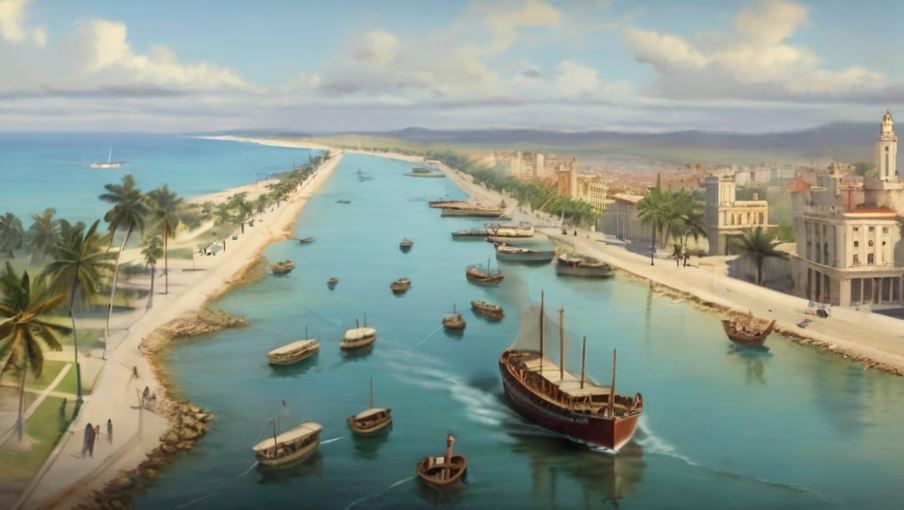
The geopolitical ambitions of the Confederate States of America (CSA) in the wake of a hypothetical victory in the Civil War extend beyond the borders of North America.
With newfound independence and a desire to assert itself on the international stage, the CSA might seek to expand its sphere of influence southwards, targeting territories with strategic significance and economic potential.
Potential reasons for this expansion include:
Economic Expansion
In the event of a Confederate victory in the Civil War, economic interests could drive the expansion into Mexico, Central America, and the Caribbean.
The agrarian and slave-based economy of the Confederacy might seek new territories to increase agricultural production and enhance economic growth.
With an economy heavily reliant on slave labor, the Confederacy might pursue territorial expansion to maintain and increase the institution of slavery.
Territories in Mexico and the Caribbean could be targeted for the establishment of slave labor plantations.
Strategic Control
Territorial expansion could be motivated by strategic considerations.
The Confederacy may seek to control key trade routes, ports, and resources in the region. Access to the Gulf of Mexico and the Caribbean Sea could strengthen naval capabilities.
Political Influence
To solidify its political power, the Confederacy might seek to influence or control the governments of neighboring territories.
This could involve supporting sympathetic factions or establishing puppet governments to align with Confederate interests and their sphere of influence.
Nationalism and Manifest Destiny
A victorious Confederacy might adopt the ideology of Manifest Destiny, asserting its right to expand its territory beyond traditional borders.
This expansionist vision could be driven by a sense of nationalism and a desire to fulfill perceived historical imperatives.
The United States did not aggressively expand into Mexico in mid-19th century, due to concerns about the balance between slave and free states and the potential impact on the delicate political equilibrium. The Confederacy would be released from this constraint and would be free to drive their power base into these areas.
Regional Rivalry with the Union
To counterbalance the influence of the Union, the Confederacy might pursue expansion into neighboring territories.
By securing control over Mexico, Central America, and the Caribbean, the Confederacy could position itself as a dominant regional power, directly challenging Union interests.
However, the prospect of Confederate expansion into Mexico and the Caribbean could provoke a response from the United States and other regional powers, leading to increased competition and potential conflicts over territorial control.
The balance of power in the Western Hemisphere would be fundamentally altered, reshaping alliances and rivalries in ways that reverberate across the globe.
7. Industrialization of the South

The Feasibility of Southern Industrialization due to Its Agrarian Foundation
The potential for industrialization in the Confederate States of America (CSA) following a victorious outcome in the Civil War raises critical questions about the feasibility of transitioning from an agrarian economy to an industrial powerhouse.
Several factors might prompt the South to industrialize. These reasons could include:
- Military and Defense Concerns: A victorious South might recognize the need to strengthen its military capabilities to defend against potential future threats from the North or other external forces. Industrialization could enable the production of advanced weaponry, munitions, and other military technologies, providing the South with a more robust defense infrastructure.
- Economic Independence: The South, having secured its independence from the Union, might seek to reduce economic dependence on the North. Industrialization would allow the South to develop its own manufacturing base, reducing reliance on Northern industries for finished goods and thereby enhancing economic autonomy.
- Diversification of the Economy: Industrialization would provide an avenue for economic diversification, allowing the South to develop industries beyond agriculture. This diversification could make the region more resilient to economic fluctuations and provide alternative sources of revenue.
- Technological Advancements: A victorious South might recognize the importance of adopting modern technologies to stay competitive. Improved machinery, transportation systems, and communication infrastructure could contribute to overall economic development and efficiency.
- Internal Infrastructure Development: The South might recognize the need for improved internal infrastructure, such as railways and telegraph lines, to facilitate transportation and communication.
Comparison with Nations Transitioning to Industrialization

The experience of countries like Japan and Germany in the late 19th and early 20th centuries offers parallels to the potential trajectory of the South.
These nations successfully navigated the transition from agrarian economies to industrial powerhouses, but not without facing significant challenges.
In the case of Japan, the Meiji Restoration marked a deliberate and comprehensive effort to modernize the nation. Embracing Western technologies and institutions, Japan rapidly transformed from a feudal society to an industrialized nation.
Similarly, Germany’s industrialization was characterized by strategic state intervention, educational reforms, and a strong emphasis on technological advancements.
Drawing from these historical examples, the Confederate States would need a proactive and concerted effort to bridge the technological and cultural gaps between an agrarian past and an industrial future. State-led initiatives, investment in education and infrastructure, and a willingness to adapt to new economic models would be paramount.
However, the Confederate States, with its distinctive socio-economic landscape and historical baggage, would face a complex journey towards industrialization.
8. Global Influence
Reduced Global Influence for Both American Nations
In the hypothetical scenario where the Confederate States emerge victorious in the Civil War, the global influence of both American nations would likely deviate from the historical trajectory.
The historical dominance of the United States as a singular, powerful entity has been a defining feature of the global order.
Economically, politically, and militarily, the divided American nations may find it challenging to assert the same level of influence that a united America historically demonstrated. Competing interests, potential conflicts, and the need for internal stabilization could divert resources and attention away from global engagement.
The absence of a singular, powerful United States could create a void in global leadership, as the two separate entities grapple with internal challenges, reconstruction, and the complexities of forging their identities.
Europe Remaining the Dominant Force Well into the 21st Century
With the reduced global influence of the divided American nations, Europe would remain the dominant force well into the 21st century.
Historically, Europe has been a geopolitical heavyweight, and the absence of a unified and influential United States might allow European nations to consolidate their power from the 19th Century and continue to influence the world stage.
9. The Impact of a South Victory on World War 1

A Victory for the Confederacy could have impacted the trajectory of World War 1.
Confederacy’s Involvement
Cultural and Economic Alignment: Having achieved sovereignty, the Confederacy might seek alliances with European powers that share similar cultural or economic interests.
Germany, being a young nation like the Confederacy, with a sense of militarism could have been a natural ally.
They would have both shared a desire to counterbalance existing global power dynamics and been sympathetic to each others cause.
Military Contribution by the Confederacy: The Confederacy’s military contribution would hinge on its post-Civil War industrial and military development.
If successful in industrializing, the Confederacy could emerge as a valuable ally, offering resources, manpower, and potentially military expertise to support its chosen allies.
Manpower and Military Expertise: The Confederacy might provide significant manpower to bolster its allies’ forces.
With Victory still reasonably fresh in everyone’s minds, the Confederacy could play a strategic role in planning and executing military operations alongside its allies.
Union’s Involvement
Global Diplomacy: The Union, facing the challenges of reconstruction and potential internal strife, might opt for a more isolationist stance initially. Its involvement in World War I could be limited, focusing on domestic concerns and maintaining a stance of neutrality.
Later Entry: If the Union decides to enter the war, it might do so later, possibly influenced by shifting global dynamics or direct threats to its interests. Its participation would likely be motivated by a desire to safeguard democratic principles rather than territorial ambitions.
Potential Conflicts in the American Theater
The division of the United States might lead to conflicts in the American theater. If the North and South had differing alliances, interests, or ideologies, it could result in naval skirmishes, blockades, or even ground conflicts in North America. European powers might also seek advantages in the divided nation.
10. The Impact of a Confederate Victory on World War 2
War War 2 would be too far out to really be able to predict, but it provides an interesting exercise.
Speculating on the impact of a hypothetical Southern victory in the Civil War on World War 2 involves considering how a divided United States might have influenced alliances, strategies, and geopolitical dynamics.
The outcome of World War 1 with a divided United States is highly uncertain and depends on the choices made by the North and the South, their ability to coordinate or compete, and the influence of these decisions on the broader global conflict.
World 2 may not have even taken place with a different global balance. However, the following discussion assumes an Entente Victory in World War 1 and the Treaty of Versailles.
Japan’s Attack on Pearl Harbour

Would Japan have attacked Pearl Harbor if the South had won the Civil War and the United States was divided into North and South?
The division of the United States might have altered global power dynamics.
If the North remained a major industrial and economic power, it could still play a significant role in global affairs, but to what extent?
In the early 20th century, Japan heavily relied on international trade to access essential resources such as oil, iron, and rubber. The United States, among other Western powers, implemented protectionist trade policies and imposed tariffs that restricted Japanese access to key resources.
Japan’s expansionist ambitions were driven, in part, by the need to secure access to essential resources. The invasion of Manchuria in 1931 and subsequent military actions in China were aimed at gaining control over resource-rich territories to alleviate Japan’s economic challenges.
In response to Japan’s aggressive actions in China, the United States implemented an oil embargo in 1940. This embargo significantly constrained Japan’s access to a crucial resource, further exacerbating its economic difficulties.
In the event of a Southern victory, a weaker Union may have had less influence in the Pacific and consequently may not have placed an oil embargo on Japan. As such, Japan wouldn’t have had a reason to attack the Union. This scenario would have meant that there was no trigger for the Union to enter the war and there would not have been a war in the Pacific.
For the Union to enter the war under this scenario, the Union could have still entered the war in Europe. The most likely trigger for this would have been German aggression in the Atlantic, particularly its unrestricted submarine warfare targeting American merchant vessels.
Would the Confederacy have Joined WW2?
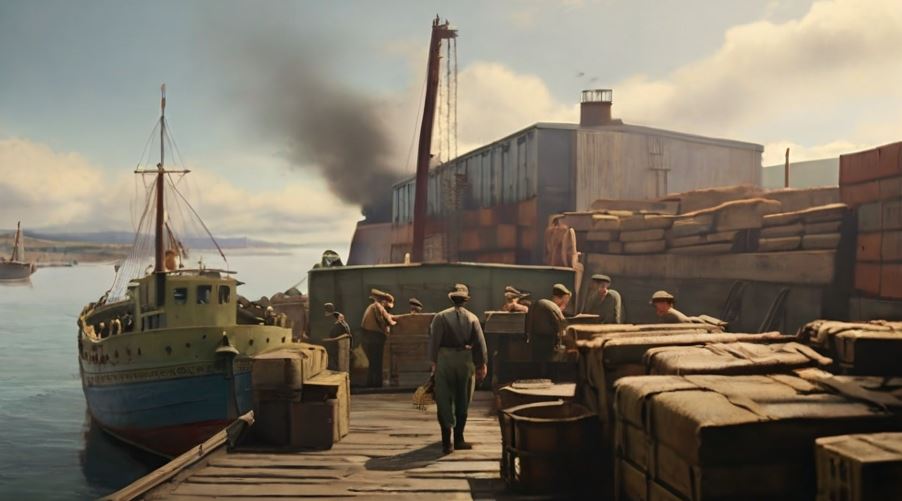
If the CSA embraced fascist ideologies and values, they might find common ground with Axis powers such as Nazi Germany and Fascist Italy. Shared ideological elements, such as authoritarianism, nationalism, and anti-communism, could lead to diplomatic and military alignments.
But in a scenario where the Confederate States of America (CSA) has embraced fascist policies, they may still want to chooses to remain neutral during World War 2.
Recognizing the complexities of global conflict, the CSA opts for a policy of neutrality to protect its long-term interests. The leadership would believe that direct involvement in the war may jeopardize the stability and growth of the fascist regime.
The CSA would likely adopt a strategy similar to Spain’s approach during the conflict. The CSA would position itself as a crucial resource provider for the Axis powers without direct military involvement.
While officially neutral, the CSA would establish economic collaborations with the Axis powers. Trade agreements would be forged to provide vital resources, including raw materials and agricultural products, which are essential for the war efforts of Nazi Germany, Fascist Italy, and Imperial Japan.
Direct involvement would likely be limited volunteer troop regiments and diplomatic negotiations.
Any direct involvement may be tied to whether the Union joins the war.
There are no right or wrong takes, only different interpretations that can teach us more about both the past and present. Please share your opinions in the comments!
Further Reading
If you enjoyed this article, you may be interested to read more alternative history articles or about the American Civil War events or more general American history.


